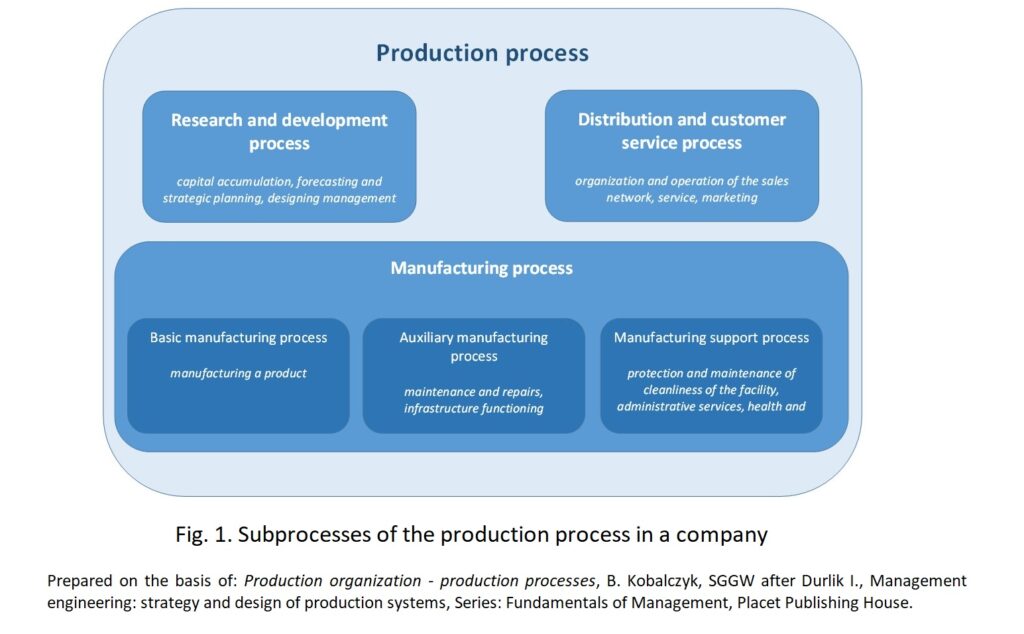Helm for the Second Time – Versioning and Rollbacks for Your Application
We describe how to perform an update and rollback in Helm, how to flexibly overwrite values, and discover what templates are and how they work.
 Author:
Author:From an entrepreneur’s point of view, each implementation of a new IT technology introduces modifications to the company’s current production process. The production process is an orderly set of activities (operations, activities) aimed at producing specific products and as a result of which the consumer (user) receives products or services.
Fig. 1 shows in a graphic form the division of the company’s production process into its sub-processes, i.e.:

When implementing a new IT technology project, one should take into account the potential impact of a given implementation on individual elements of the company’s production process, including:
Examples of impacts of IT projects on the production process (as above) can be multiplied. It is important to be aware that an implementation of IT technology in a company does not only boil down to the simple purchase and launch of an application, but is an element of the broader adaptation of the technology, to a large extent influencing the entire production process of the company. As part of IT projects carried out by INNOKREA, we always broadly analyze the potential areas of impact of a given implementation (including risks).
In this understanding of the improvement of the production process, it should be remembered that each IT implementation requires a certain period of adaptation of the entire enterprise (or a given part of the organization) to the introduced change. We are then dealing with the phenomenon of the so-called stabilization of production, i.e. the period after which the company returns to the previous or better level of effectiveness of the modified production process.

Helm for the Second Time – Versioning and Rollbacks for Your Application
We describe how to perform an update and rollback in Helm, how to flexibly overwrite values, and discover what templates are and how they work.
AdministrationInnovation

Helm – How to Simplify Kubernetes Management?
It's worth knowing! What is Helm, how to use it, and how does it make using a Kubernetes cluster easier?
AdministrationInnovation

INNOKREA at Greentech Festival 2025® – how we won the green heart of Berlin
What does the future hold for green technologies, and how does our platform fit into the concept of recommerce? We report on our participation in the Greentech Festival in Berlin – see what we brought back from this inspiring event!
EventsGreen IT